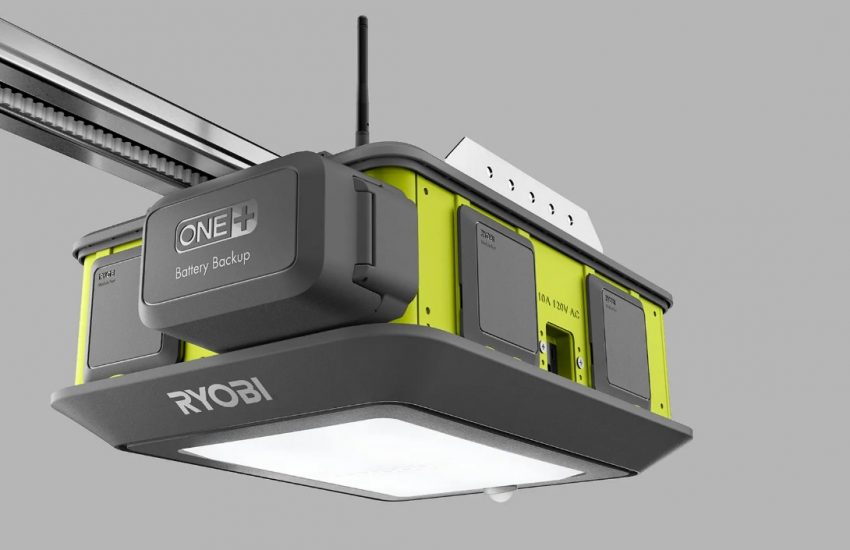Can My Garage Door Be Hacked?
The deadbolts and physical locks of older times garage doors are no more. They’re replaced by electronic locks coupled with a digital control panel and an electronic garage door opener in most homes.
Any moment you introduce an electronic control board, you bring up the possibility of a hacker exploiting a vulnerability in the system and unlocking the entire thing.
Can Someone Hack Your Garage Door Opener?
Typically, a skilled hacker with access to the right tools and codes can open your door. All they need is access to your door’s digital code or the manual lock that releases the door from the opener.
Since the digital code is the most significant shortcoming, most manufacturers have models that counter this by using a rolling code garage door opener.
How Do Hackers Decode a Garage Door Opener?
The easiest way for a hacker to open your automated garage is by getting the prevailing code and sending it to the opener from a capable device. The way you access this code varies depending on your garage door type.
Hacking old garage door openers with fixed codes is undeniably more straightforward. Here are some of the techniques they can use to steal the code.
Bruteforce Hacking
Since a fixed code garage door opener holds onto a single code until the user reprograms it, a hacker can spend hours or days trying to brute force hack their way into your home.
A brute force hack involves using a powerful computer to guess different codes and automatically try them on your opener until it finds one that opens the door.
The time it takes to guess the correct code depends on how many digits you have on your opener, how fast the computer and transmitter can try generated codes, and whether you change your code with the hacker in the process of hacking the opener.
Even though it might sound tiresome, it is the most practical way to hack older fixed code garage door openers if you have no access to the opened garage.
Reading Dip Switch Positions in the Opener
The first automatic garage door openers didn’t have a digital programming system. The opener’s code depends on a set position of dip switches on the garage door opener motor unit.
Suppose you have access to the house or even a stray garage photo capturing this opener section. In that case, you can easily cross-reference this to the opener model and decode the garage door opener.
Code Cloning from a Stolen Garage Door Opener
We have figured that the opener code is the holy grail to activating a garage door opener without any physical intrusion. Finding a smooth and non-violent way to steal the code is the perfect heist.
Many older openers provided a simple learning solution that let homeowners program additional garage door openers using an already programmed unit.
It is a technique similar to what you would do with a universal TV remote. The new garage door opener gets the correct code by decoding the RF transmission frequency from an already programmed remote.
The process is as simple as getting the new fob into learning mode and pressing the lock or unlock button on the already programmed fob.
Though convenient, it quickly became the way of choice to hack into people’s garages. You needed access to their already programmed garage door opener or vehicle with a programmed opener.
However, most units fixed this oversight and cannot allow you to program a new garage door opener without access to the garage door opener keypad or the opener motor unit itself.
Eavesdropping on Your Fob’s Transmission
A final way to access the code is intercepting it during transmission. All garage door opener fobs transmit the code as an RF signal. Very few of the installed units encrypt this transmission.
Suppose you know the garage door opener model. In that case, you can easily match this RF transmission to a specific code that opens the door. Alternatively, you could retransmit the exact RF signal to activate the opener.
This trick in an advanced stage can also decipher the following active code in a rolling garage door opener code system.
Since the openers exchange the code immediately after opening, intercepting this transmission and deciphering it will give you access to the next correct code.
Alternatively, the hacker could generate a series of next possible codes depending on data they gather over time, seeding their brute force attack on your garage door opener.
Another attack could intercept one code and prevent the garage door from opening. The user will press the fob again activating it with a second code that will open the door. If lucky, the hacker can use the first intercepted code to open old garage door openers again in the future.
How Do I Stop My Garage Door from Being Hacked
Now that we’ve seen hacking a garage door opener is possible, the next step would be hack proofing your garage door opener.
If You Have an Old Opener, Upgrade it ASAP.
Old openers are less sophisticated and have fewer security features. For instance, most don’t have rolling codes.
Others have very short security codes that are easier to crack. Others never encrypt the information transmitted between the opener fob and the opener motor or control board.
Such devices are easier to intercept and hack. Getting a newer unit with better security features is an excellent way to hackproof your garage door opener.
- Look for rolling code units.
- Find an opener with longer garage door opener codes.
- Look for a unit that encrypts transmission between openers.
- Find a unit that can detect brute force hack attempts and protect itself from multiple opener code attempts.
- Find a unit that doesn’t let you replicate garage door opener fobs without access to the opener’s controller.
- Go for units that remember remote control IDs and don’t respond to other remotes whose physical chip ID isn’t registered in memory.
Keep a Tight Leash on Your Garage Door Openers
Hacking a garage door opener, though possible, is hard work. Most intruders will opt for the easy way in – stealing or duplicating working openers.
Take care of your garage door opener as much as you would your phone. Don’t leave it lying around or give it to people you don’t trust or know.
If your opener is stolen or lost, change the code on your garage door opener unit at home and remove the key from memory. This reduces the chances of someone accessing your garage using the lost opener.
ProTip: The same applies if someone steals or accesses your vehicle programmed to open your garage door.
If You Can’t Upgrade, Change Your Codes More Often
Upgrading a garage door opener can be expensive. If you are strapped for cash, you could find alternatives to make it slightly harder for hackers to guess your garage door opener code.
The simplest way out would be to change your fixed code as often as possible. This will throw off brute force attacks or the possibility of someone opening your garage door using a misplaced opener.
Apart from this, you should also keep your existing openers as close to you as possible. Ensure anyone with an opener fob doesn’t leave it unattended at any point.
Finally, even though programming your vehicle to the garage door opener is convenient, you should avoid it, especially if you have an old opener or share your car often. Stick to an opener fob as they are easier to keep in person.
Can Another Remote Open My Garage Door?
Yes, if configured to the correct frequency and opening code to your garage door opener. Though the chances might be rare, the coincidence can occur.
Specific garage door opener models have a finite number of programmable codes. The possibility of someone else having your exact code innocently configured to their own opener isn’t unheard of.
Suppose someone’s else opener works with your garage. You should consider changing your frequency and codes using the DIP switches or the Learn Button on the garage door opener.
The coincidence could happen again, though, with another person you don’t know 🙂
The ultimate solution would be a rolling code unit or a garage door opener that remembers remote chip IDs and cannot respond to another remote with the correct code if the chip ID doesn’t match.
How Do I Know if My Garage Door Opener Has a Rolling Code?
Since rolling code tech is an advancement over fixed code units, manufacturers will mention it in the user manual and sales copy of hardware branding.
Look for words like Rolling Code or Security Plus on the user manual, the opener motor or the control board.
A case study of popular garage door opener models reveals that Chamberlain and LiftMaster started using rolling code systems in 1993.
They shifted to Security + in 1996 before moving on to MyQ Security + 2.0 in 2013. The latter lets you use smartphones to control the garage door and have more robust encryption and security features that make the 90s garage door openers look like child’s play.
Do I Need a Garage Door Opener Keypad?
Some garage door openers give you a keypad which you can install outside the garage and punch in a specific pin to open the door when you come back home.
While this is convenient when you don’t have a remote, it provides another interface a hacker can use to guess your opener codes.
Consider migrating it to an indoors or secured place to limit access if you have one. You can even do away with it and remain with remote fobs. This is a simple but efficient way to hackproof your garage door.
Secure Your Home from the Garage
Most homes have a door connecting the house to the garage. Most builders install a flimsy wood door with a simple lock that homeowners rarely use.
If someone accesses your garage and shuts the door behind, they will have all the time to crack open this door.
You can make things harder by installing a strong door and keeping it locked whenever you’re not at home. Additional active security features like an alarm and a camera will give you extra protection if anyone ever hacks your garage door opener.
At least, you will only have to worry about things kept in the garage instead of the entire house.


